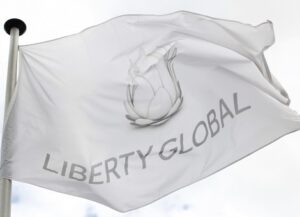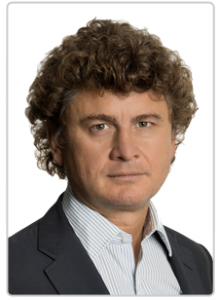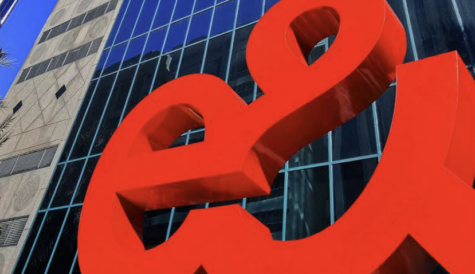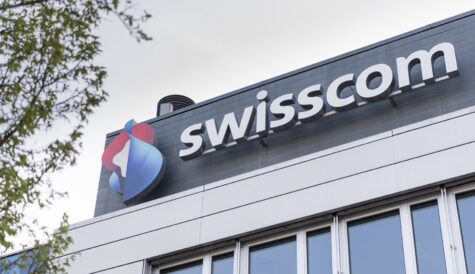Liberty Global: five takeaways from the BofA Securities C-Suite TMT conference
 Liberty Global’s leadership usually have interesting and illuminating stories to tell and chief financial officer Charlie Bracken is no exception.
Liberty Global’s leadership usually have interesting and illuminating stories to tell and chief financial officer Charlie Bracken is no exception.
Bracken was interviewed by analyst David Wright at the Bank of America Securities C-Suite TMT Conference this week. The key takeaways from a wide-ranging discussion were as follows:
1. All-fibre is the way to go
All-fibre is the way to go (with one exception). As reported by Digital TV Europe, Bracken said that Liberty Global is essentially moving towards an “all-fibre” future in four of its five markets.
Bracken’s concession that “reasonable men could argue [that] fibre is the only way to compete” is an unusually clear statement that HFC in Europe is ultimately on the way out, at least in the markets that Liberty operates in. (The exception is the heavily cabled Netherlands, where JV VodafoneZiggo is also over-leveraged and needs above all to achieve growth rapidly).
This means, by and large, building out fibre-to-the-premises in greenfield areas (with off-balance sheet entities) and upgrading to fibre in legacy HFC heartlands, rather than looking at a long-term investment in distributed access architecture HFC and DOCSIS 4.0.
Whether this ‘all-fibre’ approach applies to European markets where Liberty is not active – notably Germany – is open to doubt (and even with Liberty’s footprint, an all-fibre strategy would be less-expected in Switzerland for example). But it clearly plays to the notion that there is a significant gap opening in the upgrade strategies of historic cable operators in Europe versus North America, where DOCSIS has a 70% share of the broadband market as against 20% in Europe.
Bracken’s comments on the BofA call are less nuanced perhaps than those made by CTO Enrique Rodriguez at another recent conference, but they clearly show that the company has a fibre future in its sites.
2. Video is here to stay
Video is a poor relation to broadband but will probably stick around.
Speaking about the UK market and Telefónica JV Virgin Media O2, Bracken said that VMO2’s fixed business included declining voice and video businesses that can be contrasted with the high-growth connectivity business, which dragged overall ARPU growth down.
“It is hard to see ARPU growth at absolute rates because you see these contrasting trends,” he said, in addition to which Virgin Media had been a “high price” provider, he added.
He said that broadband connectivity still has “good pricing power” including broadband delivered via the HFC network, but the company also faced pricing competition from fibre providers desperate to increase penetration.
However, while fixed voice is clearly a declining business, Bracken said video provided a way to differentiate the offering.
“The video will continue to migrate. Video was never our most profitable business. Many will say it was a marginal business, but the economics are getting better with the new set-top box technology. We could see flattish ARPUs but accelerating free cashflows over time,” he said.
This echoes earlier comments by Bracken’s boss Mike Fries. In the Liberty Global playbook at least, it seems video still has a role to play in broadband providers’ overall strategy, including investing in consumer premises equipment – the case being made easier by the declining cost of the latter.
3. Ventures are exciting
Ventures are exciting. In addition to its core business, Liberty Global invests in ventures that are not core but that it believes are likely to deliver a decent financial return.
The most high-profile ‘ventures’ investment currently is probably Liberty’s stake in production outfit All3Media. ITV confirmed this week that it is “actively exploring” an acquisition of All3Media, in a deal that could be valued in excess of £1 billion (US$1.3 billion). Liberty also owns a 10% stake in ITV.
Bracken said that Liberty Global had taken the view at the time that high-end TV production “would be a growth business” because streamers were prepared to buy rights in perpetuity. “We thought this was a consolidation play,” he said.
Liberty Global has also played in sports rights and invested in Formula E – taking a bet in that case that there would be a zone where Formula 1’s popularity overlapped with surging interest in electric cars.
Ventures goes beyond video but Bracken said there was a large area of activity adjacent to Liberty Global’s main line of business that offered interesting possibilities. Digital infrastructure is one, particularly in the area of cloud and edge computing.
4. Local knowledge is king
Local knowledge is king. While Liberty Global’s decentralised structure is problematic in terms of realising the ‘true’ value of the whole, decentralisation works well in the operational sense, according to Bracken.
Asked about the potential of AI to transform the business Brackent said that “as a macro-trend it offers great opportunities” before going on to expand: “Every individual opco is approaching it see how it can provide scale,” he said, noting that the application of AI to finance at a micro level – “accounts payable, keeping track of where all the new homes are etc.” – is where he sees the most immediate potential.
Figuring all this out, he says, plays to the strength of a decentralized organization that leans on the expertise of its local teams.
“We are approaching it on a decentralized basis,” he said. “The customer is at the local level and we should be doing what suits the customer.”
5. Realising value means change
Realising value means change. Liberty Global as it stands today is a mix of joint-ventures, primarily aimed at realising the vision of fixed-mobile convergence, and the partially-owned Telenet (which it is attempting to acquire completely), alongside off-net infrastructure JVs (with Telefónica and InfraVia in the UK and – recently approved by the EC – with Fluvius in Belgium) where it is rolling out fibre.
That overall structure is highly complex and makes it difficult to tell a straightforward story to investors. The company blames its own complexity (which makes sense for the specific circumstances of delivering FMC or investing in fibre in local markets) for its undervalued share price.
Bracken admitted that Liberty Global needs “simplification” to realise the full value of its assets in its market valuation, but said that its long-term strategy remains the same.
Liberty Global “suffers from a holding company discount” in its valuation because of the complexity and difficulty of communicating the value of joint ventures and “a portfolio that is hard to position in one equity story”, he said.
He added that having the flexibility to consider spin-offs and IPOs “has to be in our toolkit” if the company or its parts are to be fairly valued.
He said this was “frustrating” but Liberty was trying to figure out “how to rejig the way these assets are presented to the public markets”.
As Liberty had bought back 60% of the company through its share buyback programme to date, and was moving forward with further buybacks, there was “a lot of value to be created” if the company could “unlock” the discount, he said.
He said that the company’s move to Bermuda as its seat of governance would give it more flexibility to “break and spin” parts of the company.
However, he said, change would not come overnight: “We need to do it in an evolutionary way.”




